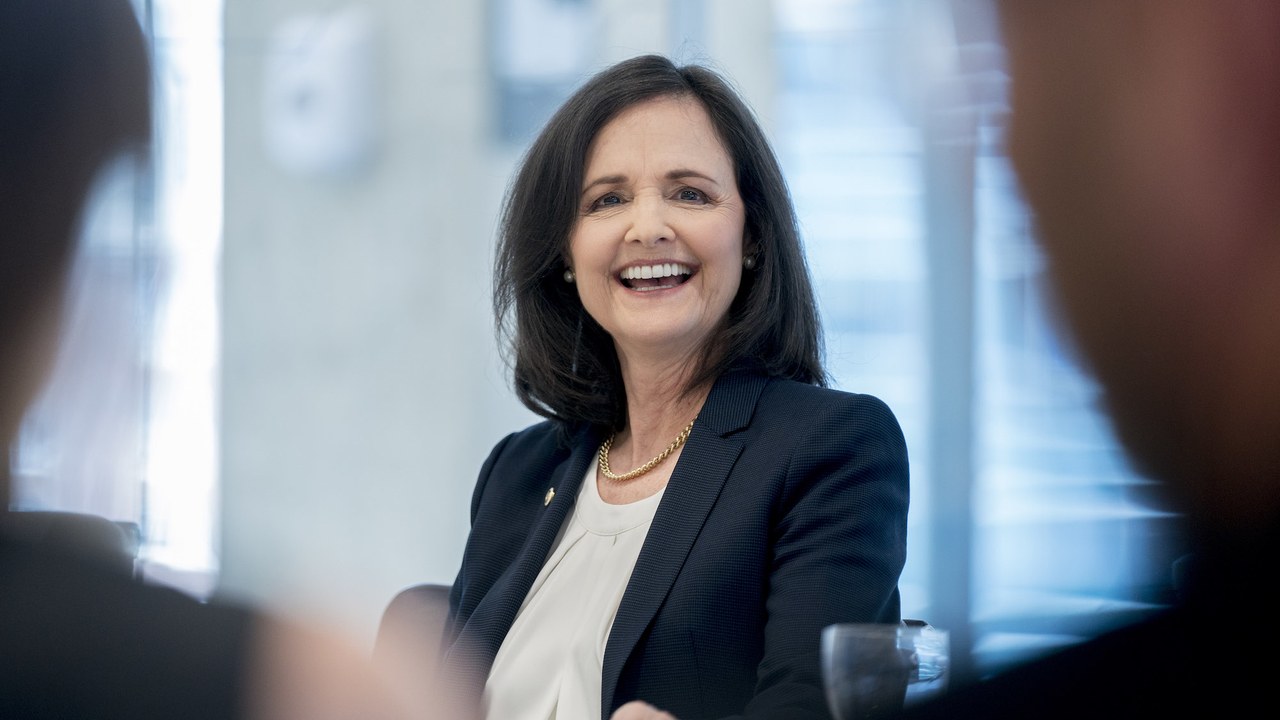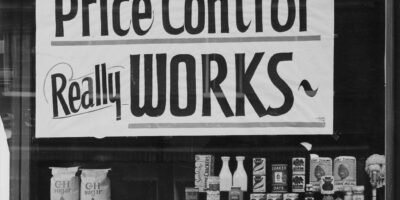Judy Shelton on Competitive and Private Currencies
President Trump has announced that he intends to nominate Judy Shelton to the Federal Reserve Board. She has a long literary career that involves advocacy of sound money and a form of the gold standard. This excerpt from her book addresses the topic of competing currencies, especially relevant in today’s technological environment that threatens the monopoly position of the U.S. Dollar:
From Fixing The Dollar Now: Why US Money Lost Its Integrity and How We Can Restore It, by Judy Shelton (Washington, D.C.: Atlas Economic Research Foundation, 2011). Reprinted with Permission.
Some of the most prominent monetary economists have come to the conclusion that even a gold standard can be compromised by government manipulation. Friedrich Hayek, recipient of the 1974 Nobel Prize in Economics and foremost member of the Austrian school of political economy, would not trust government even to maintain an honest gold standard. But if government cannot be relied on to issue the money, who can? “I am more convinced than ever that if we ever again are going to have sound money, it will not come from government,” Hayek asserted in November 1977. “It will be issued by private enterprise.”
But what would it mean to have private enterprise money? It’s difficult to think of an asset more public in nature than money. Defining it as the medium of exchange designates its acceptability as a measure of value. Its validity is acknowledged by the parties concerned in any economic transaction. To compete with government-issued money, or to replace it, private money would have to be at least as acceptable to its users as government-issued money. To attain that level of legitimacy would require going beyond legal definitions or economic comparisons; private money would have to be culturally acceptable.
The fact that humans still tend to think of themselves as citizens of specific nation states, subject to the authority of their governments, suggests there might be a higher psychological comfort level associated with using government-issued money. Money has an official air about it with its iconic symbols, numbers and official signatures, its illustrations of cultural heroes and important historical events. It conveys the very essence of national sovereignty. (Indeed, a major design hurdle for the euro was to create reassuring images associated with the traditional monetary authority of individual states while nevertheless avoiding any specific nationalist reference. The solution was to evoke generic landmarks representing historic bridges, arches, and gateways; the images printed on euro banknotes are entirely fictional.)
Just because the issuance of money has long been one of the sovereign rights claimed by governments, though, does not mean that it cannot be produced and managed more effectively by private enterprise. Indeed, Hayek argued that “governments have invariably and inevitably grossly abused that power throughout the whole of history” and concluded that a system based on competing private currencies offered a much more promising avenue for achieving sound money.
Would private competition to produce money result in a more orderly monetary regime, or would it lead to even greater currency chaos?
People who believe in the efficacy of private money derive their faith from a basic belief in free markets as the least arbitrary, most efficient and fairest mechanism for producing and distributing goods and services for society. Under a laissez-faire monetary regime, competition among money producers would ultimately lead to the development of an identifiable brand of money that would fulfill consumer demands for a reliable unit of account, a store of value and a medium of exchange. To gain more customers, while at the same time retaining old customers, money would have to outperform its competitors.
To do that, it would have to become better and better until it provided the ultimate stability in the form of zero inflation for its users. As Richard Rahn, former chief economist at the US Chamber of Commerce, has argued: “Private issuers of money have stronger incentives than governments to maintain the real purchasing power of a currency because the only way to make a profit by issuing money would be to provide a currency that people consider superior to government money.”
The idea of competing private currencies is theoretically appealing because it embraces free market doctrine to advance the notion that the best money would come about as the result of having to satisfy consumer desires. Given the poor performance of the Federal Reserve and declining public confidence in its abilities to stimulate growth through near-zero interest rates and quantitative easing, it is not surprising that legislation has been introduced to permit private currencies to compete against the dollar.
Testifying in favor of House Resolution 1098, a bill known as ‘The Free Competition in Currency Act of 2011,’ economist Lawrence White of George Mason University explains: “H.R. 1098 would give currency competition a chance. It would not remove the Federal Reserve from the currency market, but it would “give the Fed a stronger incentive to deliver the kind of trustworthy money that consumers want.”
The dollar already faces salutary international competition from gold, silver, the euro, the Swiss franc, and other stores of value. H.R. 1098 would allow salutary domestic competition between the Federal Reserve Note and other media of exchange. The Fed will have little to fear from competition so long as it provides the highest quality product on the market. Continuing to ban competition from the domestic US currency market, or keeping it at a legal disadvantage, limits the options of American consumers who use money to their disadvantage.
Even so, there remains a fundamental question of whether consumers want to have a choice when it comes to money. History has shown that people have a remarkable loyalty to money that offers familiarity, even long after that currency has been debased by government and even when alternatives are available. Some of this reluctance to move to unfamiliar currencies is not irrational; there are information costs associated with accepting a new medium of exchange. There is always the risk, too, that the · next person may not be willing to accept the new currency – a possibility that detracts from the seeming superiority of an alternative form of money.
One of the important features of money is the sense of confidence it imparts as a measure for evaluating other goods and services. A monetary regime of competing private currencies potentially adds another layer of complexity to the process an individual experiences when making economic and financial decisions. To the extent there are negative aspects in having to choose among currencies, a dominant producer would likely arise as consumers rallied around the most familiar form of money. Indeed, the more popular a certain brand of currency became, the more it would capture the market; eventually it could become the only readily accepted form of money as people voluntarily chose to use it. The supposed advantages of private competitive currencies would then disappear as the most successful money producer attained a de facto monopoly.
But if the ultimate outcome of a private market for money is a monopoly, does it make much difference whether the monopoly is run by a private company versus a public entity? While the former case could lead to economic exploitation based on a market advantage, the threat of potential competition would inhibit this tendency. The latter case, however, invites a more sinister abuse of government power – even tyranny – as government precludes market entry to alternative issuers.
As long as people are confident that the currency is redeemable into real assets on demand, they may be indifferent. By habit and by history, though, it would seem that citizens are largely predisposed to grant government the power to issue money. The question is how to ensure that the integrity of money is upheld.












